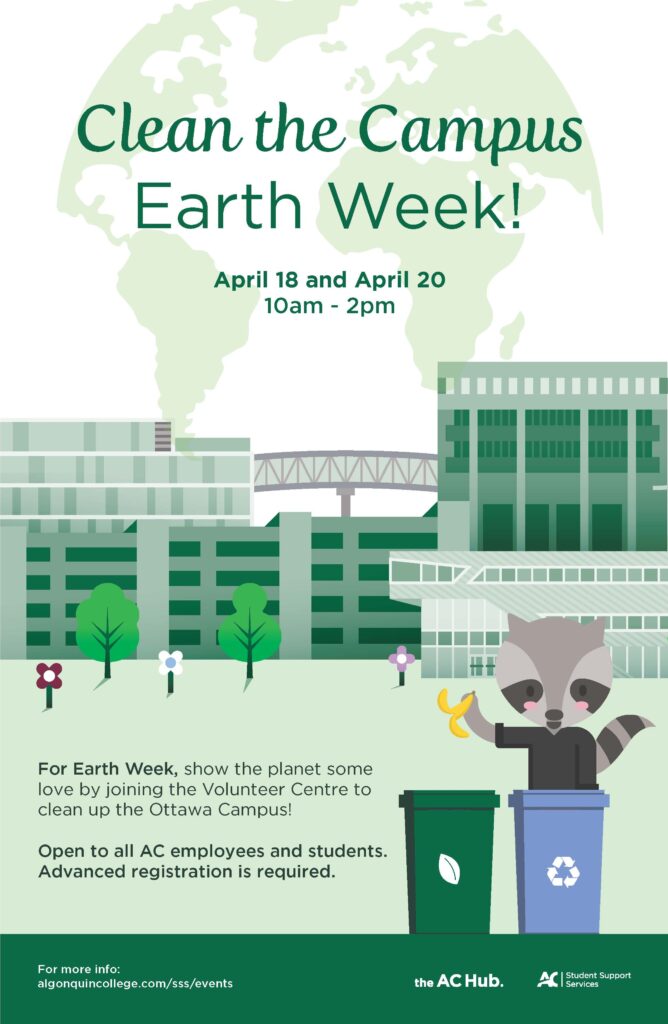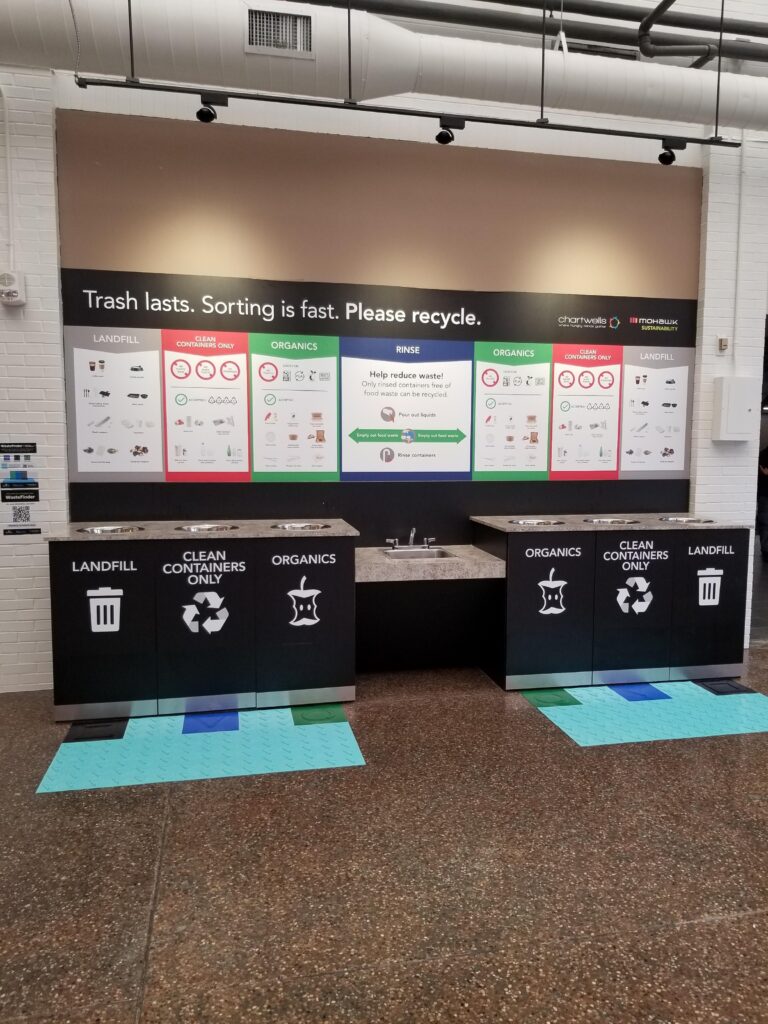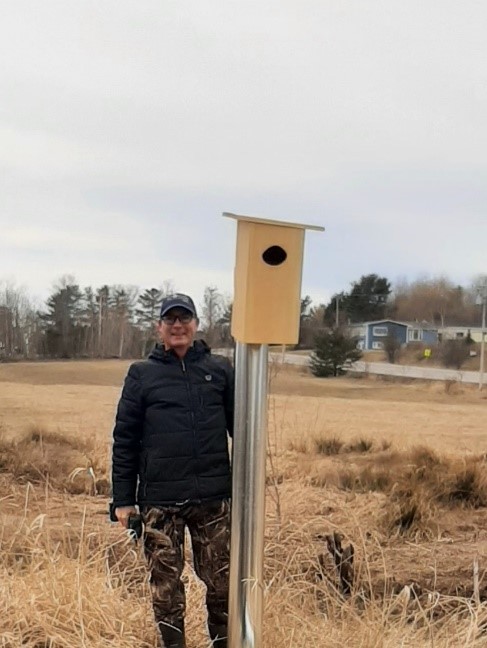The Canadian College for a Resilient Recovery (C2R2) is working with many institutions across the country that are committed to adopting more green practices to support Canada in reaching its goal of net zero.
Across the campuses of our 14 partner institutions, everyone is working hard to adopt waste-conscious policies, create safe habitats, incorporate sustainable practices in curriculum and create national awareness of the steps needed to reach our sustainability goals.
With Earth Day approaching, it is an opportunity to highlight some of the steps being taken and initiatives being adopted to maintain the well-being of our planet.
EXAMPLES OF WORK BEING IMPLEMENTED ACROSS MEMBER CAMPUSES
Throw in The Towel: Algonquin College Paper Towel Reduction Campaign
This spring, Algonquin College will be phasing out using paper hand towels in college washrooms to exclusively use electric hand dryers. In the past 18 months, the cost of paper towel has more than doubled. Not only is it more expensive, but it is non-compostable, so waste ends up in a landfill.
Currently the College spends approximately $100K/year on hand paper towels and an additional $70K in labour related costs for stocking washrooms and collecting waste. In terms of waste volume, this represents at least 44,200 bag (30 gallons) that go into a landfill annually.
The College uses 2,100 cases of paper towels each year 9,765.000 ft of paper per year. The college is committed to increasing sustainable practices, and reducing waste and emissions associated with daily operations.
Algonquin College is also encouraging staff and students to take responsibility for waste management on campus by organizing a campus-wide clean-up ahead of Earth Day. The full details can be found here.

Mohawk College Makes Waste Disposal Management Accessible
Mohawk College released the WasteFinder pilot project across its campuses to help make waste disposal management more accessible. WasteFinder is a series of tactile signage indicators that are placed on the ground surrounding waste stations. The indicators assist individuals who are blind or experience low-vision to independently and effectively dispose of their waste.

The projected was proposed by a Mohawk Alumni who helped make the project a reality, bridging the gap between accessibility and sustainability on campus by improving accessibility and social inclusion, and increasing waste diversion on campus.
The Mohawk College WasteFinder website can be found here.
Supporting Biodiversity at Nova Scotia Community College
Nova Scotia Community College’s (NSCC) Landscape Management Plan maintains grounds without the use of irrigation, harmful chemicals or pesticides, and maintains areas where native plants have been planted to promote the return of pollinators. NSCC campuses lead in their communities by initiating projects such as the keeping of local honeybee apiaries, community and native pollinator gardens, community clean-ups and piloting the use of environmentally preferred ice melt products. These projects create opportunities for students, staff and the community to support the local ecosystems.
This year, NSCC’s Annapolis Valley Campus used the College’s Sustainable Development Goals (SDG) Fund to support biodiversity at their campus. The Campus’ sustainability committee received funding for four rain barrels and two wood duck nesting boxes.
The rain barrels capture rainwater to supply the flower and vegetable gardens. The rain-captured water is chlorine-free which helps maintain a healthy biotic community in the soil. The Wood Duck nesting boxes support the conservation of Wood Ducks, whose populations have declined from habitat loss and a lack of secure nesting areas.

Saskatchewan Polytechnic Celebrates First Annual Sustainability Day
Sustainability is one of Saskatchewan Polytechnic’s (Sask Polytech) four key values, and feeds into their vision and mission, to lead the rise of polytechnic education and empower a better Saskatchewan. Sask Polytech is pleased to present its first annual Sustainability Day, bringing together students, faculty and staff to celebrate all their work contributing to sustainability and the United Nation’s Sustainable Development Goals (UN SDGs).
In-person and virtual events are planned including poster presentations, lightning talks and the Student Sustainability Innovation Competition prizewinner announcement. The day is also an opportunity to connect with others across the campus community in the spirit of miyo wâhkôhtowin—good relationships. Sask Polytech plans to make Sustainability Day an annual event to coincide with Earth Day.
While there is still plenty of work to be done across Canada, it is important for us to recognize our milestones and share our success stories to encourage others to follow suit.
Like our members, we encourage you to take Earth Day as an opportunity to reflect on how you could support the transition to net zero at your institution, place of work or at home! You can learn more about ways to get involved on Earth Day here.